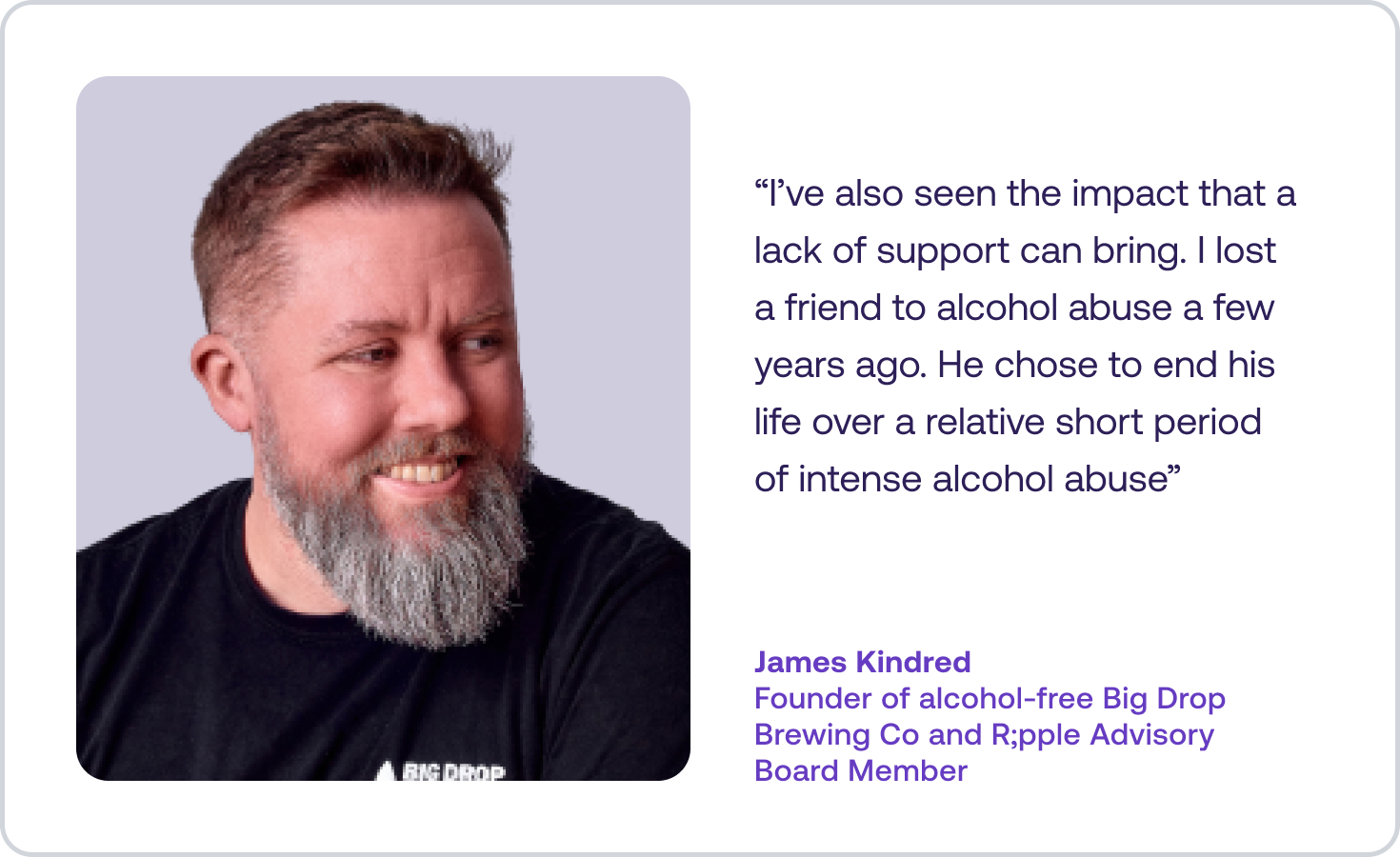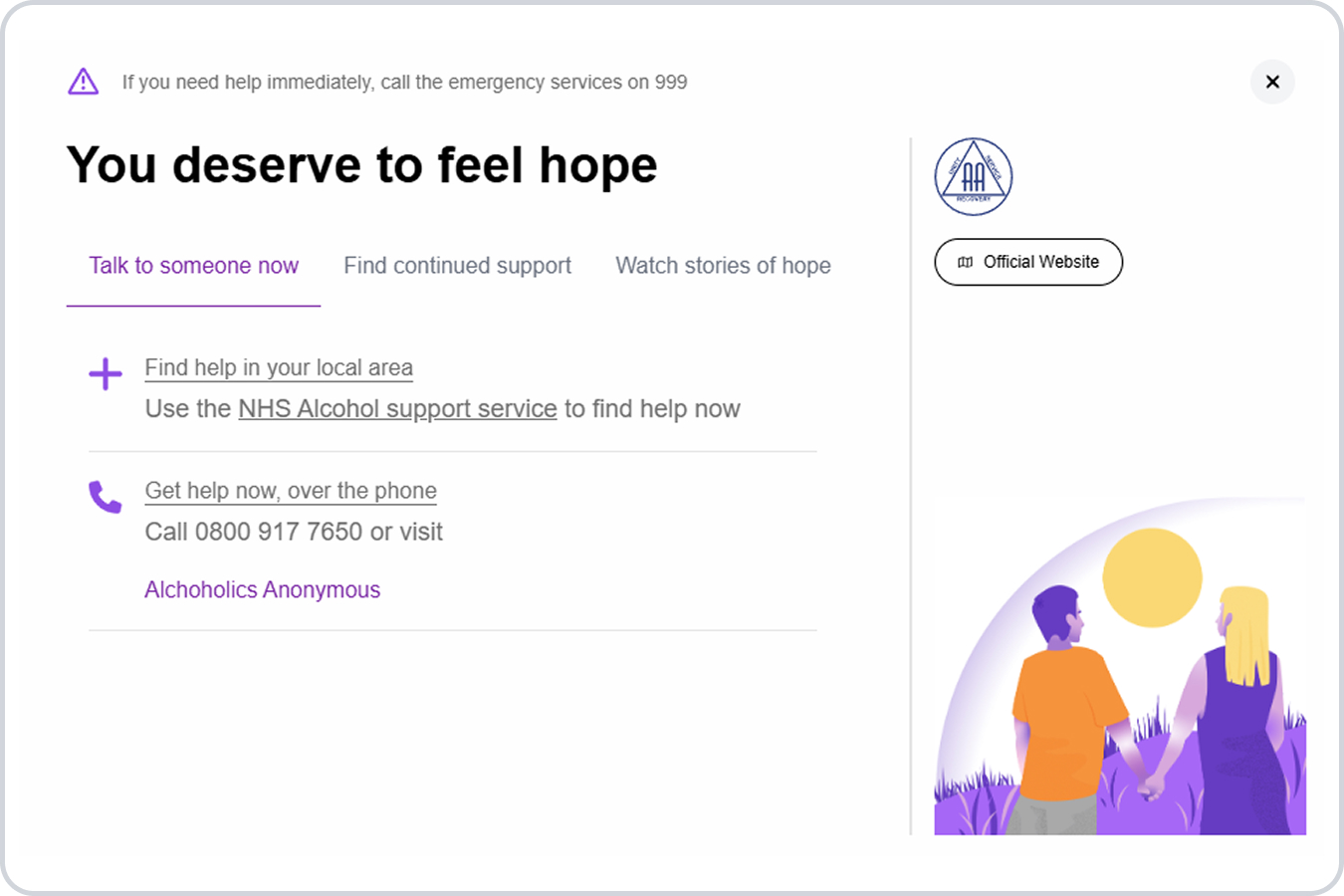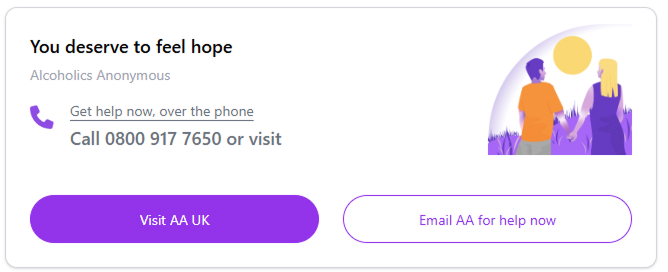

Defined as drinking in a harmful or dependent way1, alcohol misuse is a pervasive and often stigmatised issue that affects millions across the UK.
Despite the normalisation of drinking (a significant proportion of adults regularly drink over the national guidelines2) the reality is that alcohol misuse has far-reaching implications for individuals, families, and employers.
Over 600,000 adults in England alone are alcohol-dependent3 and misuse can have deadly consequences: alcohol-specific deaths recently reached record highs with over 10,000 lives lost in one year4. Further studies have also revealed that:
- There are 14 alcohol dependent adults in every 1,0003
- 30% of those in substance misuse treatment are receiving support for alcohol misuse5
- 27% of people say that workplace stress makes them drink more6
These figures are not abstract data points they are friends, family members and colleagues, and they deserve support. In this article, you'll learn about alcohol misuse, how it impacts the workplace, what organisations can do to support others, and how Ripple plays a role.

The impact of alcohol on individuals
While we are all familiar with the short-term impacts of alcohol - from relaxation to recklessness - the long-term effects are significant.
Due to the prevalence of alcohol use it represents the biggest risk factor for death, ill-health and disability among 15–49-year-olds in the UK7. But how exactly does it affect our bodies?
From sleepless nights to increased cholesterol, alcohol impacts our health in several important ways. Persistent alcohol use increases the risk of serious health conditions, including:
- Heart disease
- Stroke
- Liver disease
- Liver cancer
- Bowel cancer
- Mouth cancer
- Breast cancer
- Pancreatitis
- Damage to the brain
If someone loses control over their drinking and has an excessive desire to drink, it's known as dependent drinking (alcoholism). Dependent drinking usually affects a person's quality of life and relationships, but they may not always find it easy to see or accept this.
Alcohol, mental health and suicide prevention
Described as ‘the UK’s favourite coping mechanism’, alcohol use is closely linked to mental health. Many of us drink to try and help manage stress, anxiety, depression or other mental health problems8.
This is often referred to as ‘self-medicating’ with alcohol. However, despite a brief feeling of relaxation, there are significant long-term negative consequences in addition to the physical symptoms discussed earlier. Overuse of alcohol can contribute to the worsening of symptoms of many mental health problems. Specifically, it can lead to low mood and anxiety8.
“I was diagnosed with AuDHD in 2023 and spent a lot of my adult life depending on alcohol to get over my overwhelming anxiety and depression. Alcohol awareness is something that’s very close to me, both in terms of my work with Big Drop - but also the impact alcohol has had on me over the years,” explains James Kindred, Founder of alcohol-free Big Drop Brewing Co and Ripple Advisory Board Member.
“In my experience, depending on alcohol to appear ‘normal’ is a slippery slope, especially with a neurodivergent brain.
“I’ve also seen the impact that a lack of support can bring. I lost a friend to alcohol abuse a few years ago. He chose to end his life over a relative short period of intense alcohol abuse,” notes James.
Sadly, the relationship between alcohol misuse and suicide is also well established9. Research finds that individuals with alcohol dependence are up to 14 times more likely to die by suicide.
The impact within workplaces
The UK government estimates that alcohol-related harm costs the economy over £7 billion annually in lost productivity with 160,000+ working years lost to alcohol every year10.
While this means that the impact of alcohol misuse is often felt in the workplace, it also means that the workplace is a vital environment which can help people identify and overcome alcohol problems.
Clearly cost alone should not drive action; the human toll of alcohol misuse makes a compelling case for proactive intervention. Plus, employers have a legal duty of care to safeguard their employees.
So, how can you begin to reduce the risks of alcohol misuse and support those within your organisation? As Alcohol Change UK notes: there is no one-size-fits-all approach. However, there are key measures you can make to improve workplace safety and employee wellbeing.
A good place to start is to develop an alcohol policy. According to the HSE, all employers should also have a clear and agreed policy on substance misuse (which can include alcohol) as part of an overall health and safety structure.
For more information from the HSE on developing a policy for substance misuse, visit their website which features expert information and several key resources from ACAS and others11.
Support for alcohol misuse at work
Support is available for both those suffering from alcohol misuse and those affected by others. The following are trusted, free-to-access helplines for those struggling with alcohol misuse:
- Drinkline - from Drinkaware - national alcohol helpline: 0300 123 1110
- Alcoholics Anonymous helpline: 0800 9177 650
- Al-Anon Family Groups helpline: 0800 0086 811
- National Association for Children of Alcoholics (Nacoa): 0800 358 3456
For employers, Mind’s workplace wellbeing hub12 provides a useful starting point while Business in the Community13 offer a useful toolkit on how to manage alcohol misuse and mental health within teams. Plus, while Alcohol Change UK does not operate a helpline, their website is full of useful resources8.
However employers are not always able to support and signpost their teams when they are searching online. That's why Ripple's digital crisis intervention tool has now expanded functionality to provide wider support for alcohol misuse, providing potentially life-saving support when someone is searching for harmful content online.

When an individual searches for terms related to alcohol abuse Ripple activates to direct them to various support options, including:
- Immediate helplines
- Addiction recovery tools
- Mental health support
By including alcohol misuse within our protective scope - in addition to suicide and self-harm - Ripple helps organisations extend their care beyond crisis point and into early intervention.

Ripple’s expanded protection is now available for all businesses, educational institutions, and public sector organisations. If your organisation is already using the Ripple tool, you can activate expanded support now, at no extra cost by getting in touch.
Sources:
1. Alcohol misuse, NHS
2. Alcohol facts, Alcohol Change UK
3. Estimates of alcohol dependent adults in England: summary, Gov.uk
4. Alcohol-specific deaths in the UK, ONS
5. Adult substance misuse, Gov.uk
6. Workers 'more stressed' now, YouGov
7. The public health burden of alcohol, Gov.uk
8. Alcohol and mental health, Alcohol Change UK
9. Association of alcohol and drug use disorders and completed suicide: an empirical review of cohort studies, Science Direct
10. Health matters, Gov.uk
11. Managing drug and alcohol misuse at work, HSE
12. Workplace wellbeing hub, Mind
13. Toolkit for employers, BITC
Our Sponsors and Supporters

















